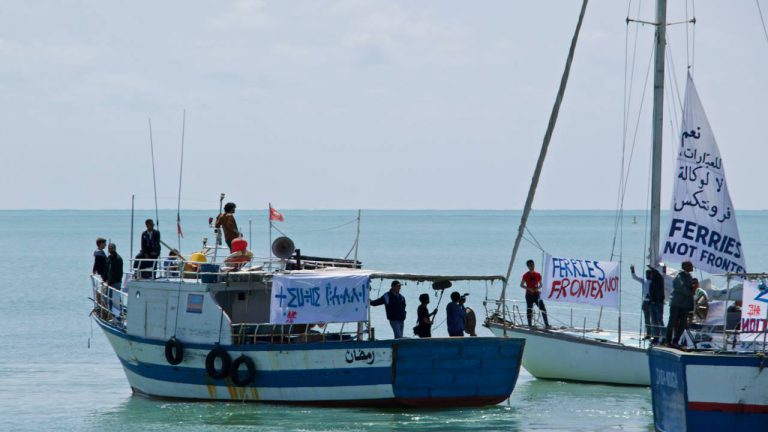The University of Palermo and New York University have just finalised the programme of their conference titled ‘Black Mediterranean: ReSignifications‘ – a topic that is raising widening international interest lately (see amongst others these new publications by Ida Danewid -awarded with the Third World Quarterly Edward Said prize- and Gabriele Proglio, amongst others, as well various posts on the Black Mediterranean on these pages). The international workshop, which will take place between Palermo and Naples on 6-9 June 2018, follows a series of international conversations that are breaking new ground in the fields of African and African Diasporic art, literature, cultural theory, history, and political practice. I will present a paper there titled ‘Permeating Territories: The Mediterranean Threshold and Black African Transformations’ -based on my longitudinal engagement with the African diaspora in Italy. I’m very much looking forward to this experience! Collateral events of the MANIFESTA European Biennial of Contemporary Art, the conference will be accompanied by an exhibition of the works of an array of international artists and the African art collection of Nigerian Nobel Prize for Literature Wole Soyinka, who will open the conference.
Monthly Archives: May 2018
Self-harm
Still more news about the human rights violations internal to the Italian migrant detention system continues to reach the public. In a joint press release, the coalition of LasciateCIEntrare, Legal Team and Osservatorio Migranti Basilicata (OMB) denounce the CPR (Centro di Permanenza per il Rimpatrio) of Palazzo san Gervasio as a site of repression and abuse. On the phone with a local news site, the spokesperson of LasciateCIEntrare, Yasmine Yaya mentions the presence of some particularly vulnerable migrants who are trying to seek asylum and need urgent assistance. At the same time, the organisation denounces the high degrees of psychological stress that leads some inhabitants to purposively inflict self-harm and attempt suicide. In the afternoon of 26 April, a Syrian Kurdish citizen threatened to kill himself; while two other people, perhaps of Tunisian nationality, threatened to hang themselves in another migrant reception center. Final proof of the migrant rights violations arrived a few days later, with the unconditional release of all 42 inmates of the CPR in Palazzo. Interviewed by the same press agency, the lawyer of the OMB Angela Bitonti, confirms that she and her assistants managed to liberate these citizens because the detention measures were “illegitimate”, as they were based on an alleged social danger that did not persist (remember the migrants had been detained on presumption of having set fire to the reception center in Lampedusa). “From now on, they are asylum seekers, for whom the application of the rule of international protection applies… Many of these people should be helped,” Bitonti concludes, remembering that “we are dealing with human lives, with human beings, to whom life can not be denied.”
Alarm Phone
The Alarm Phone project publishes its report entitled “Mediterranean Coalitions of Struggle”. It offers an overview of the situation in the three main Mediterranean regions and the developments there: of deterrence, forcible returns, and criminalisation of migrant flows. In addition, the report gives an overview of the political campaigns and struggles members of the Alarm Phone have been involved in over the past six weeks, ranging from 24/7 phone activism, symbolic actions in the Netherlands, protests with fishermen in Tunisia, rescue operations in the Central Mediterranean, counter-investigations that speak back to European attempts to criminalise non-governmental rescue, to collective commemorations in Greece.
The report can be found on the Alarm Phone website and on Facebook




